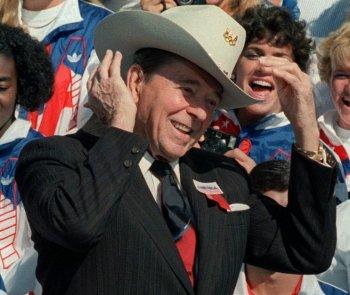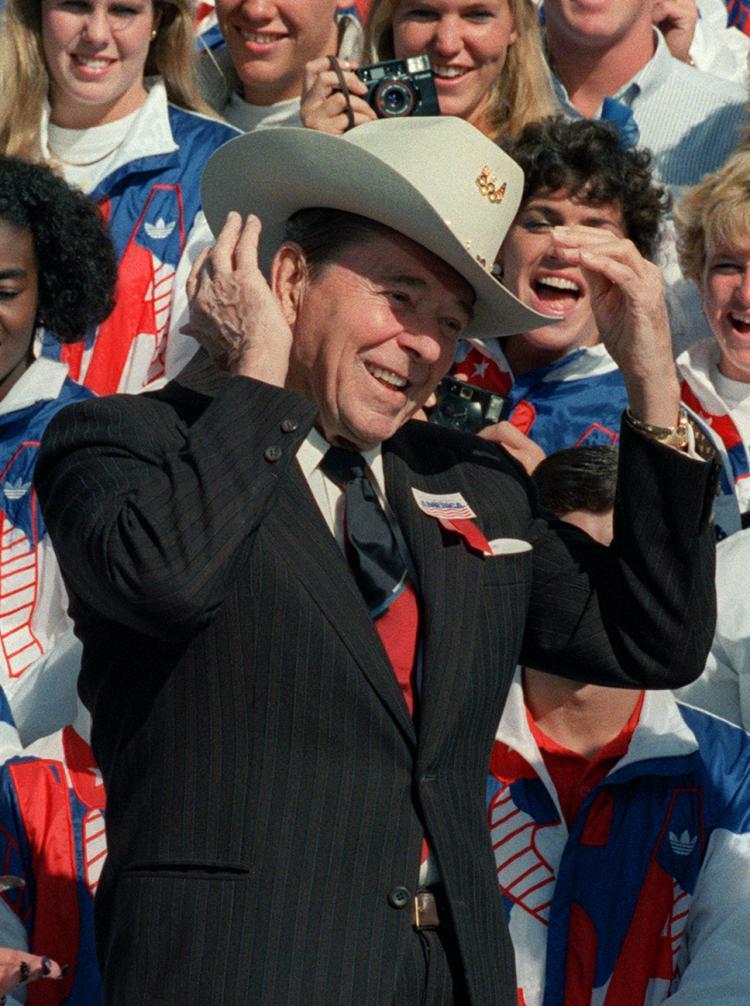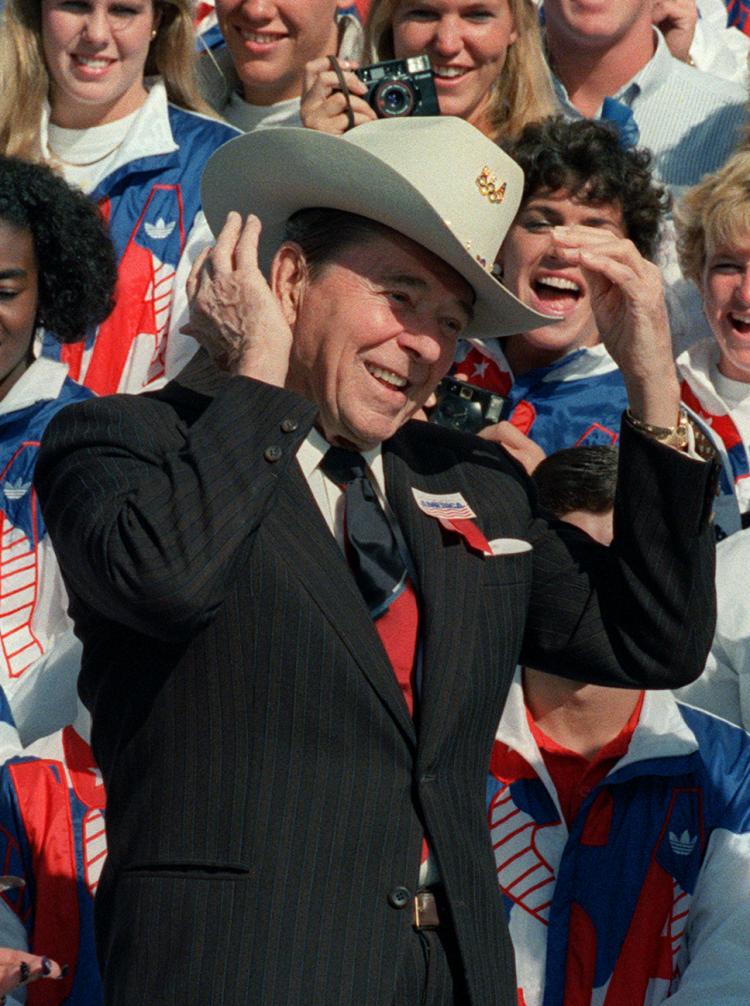A Mountain Reflection: Rendezvous with Destiny
1,500 people attended a ceremony honoring former President Ronald Reagan in Simi Valley, Calif. Former first lady Nancy Reagan was there, and she laid a wreath at her husband’s tomb, located on the grounds of the Reagan Presidential Library.

THE GIPPER: President Ronald Reagan tries on an Olympic cowboy hat on the South Lawn of the White House in Oct. 1988 during a ceremony honoring the U.S. Olympic team. Mike Sargent/Getty Images
|Updated:





